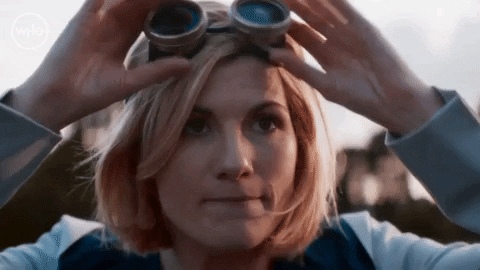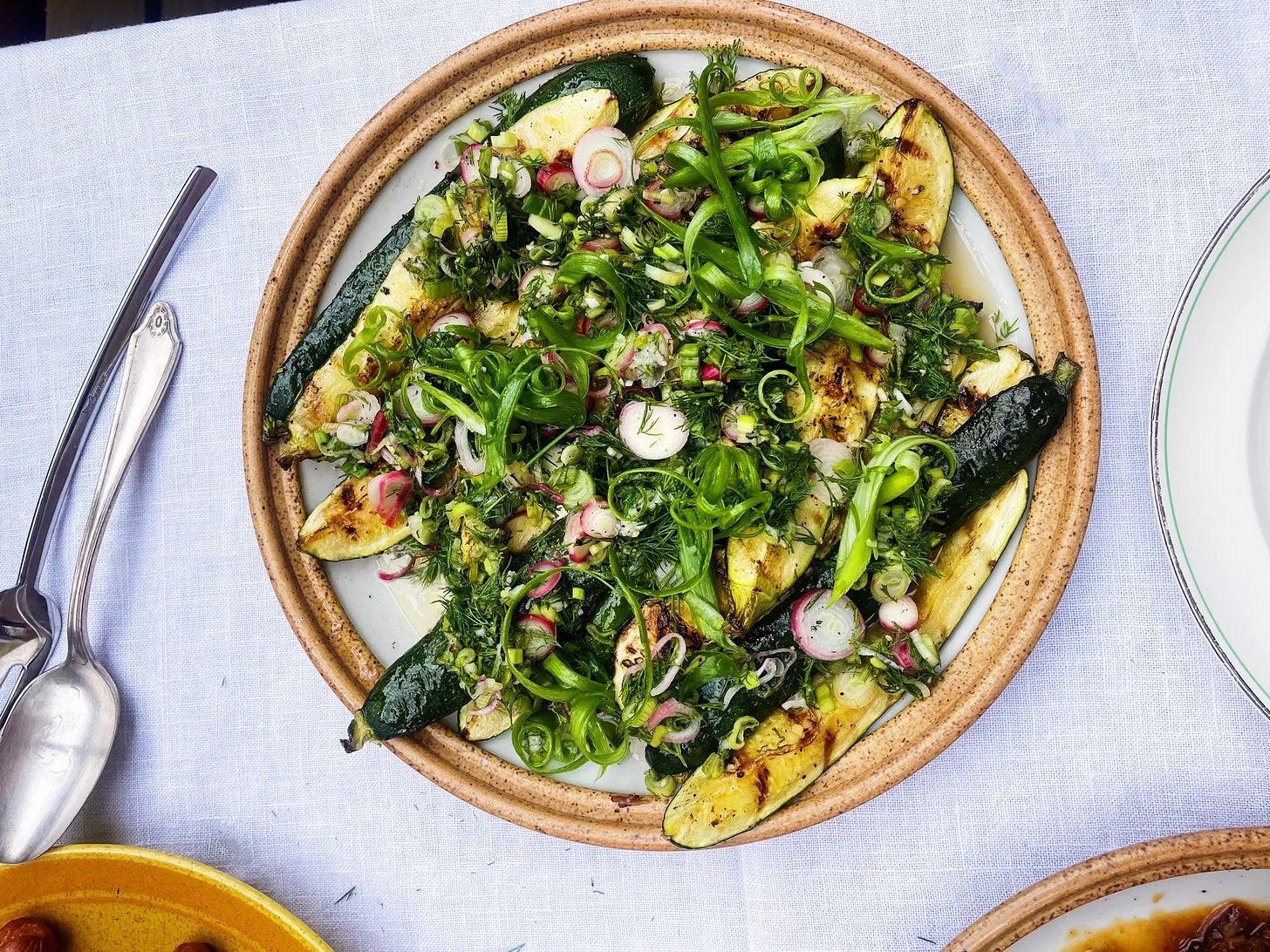#82. The U.S. surgeon general is hot and bothered
Sex leads to babies, babies lead to parenting, and parenting leads to 41% of parents being too stressed out to function
A few weeks ago, the U.S. surgeon general issued an advisory that parents in the U.S. are at their wits’ end in an essay for The New York Times, accompanied by a 36-page report.
When the surgeon general puts his or her warning stamp on something, one thing is clear – we should probably pay attention.
Here’s a list of some previous warnings doled out by surgeon generals over time, just to give you an idea of the issues that have been worthy of advisories in the past:
Cigarettes (1964)
Violence on TV and in video games (1972)
AIDS (1986)
Drunk driving (1989)
Obesity (2001)
Vaping (2016)
Gun violence (2023)
Loneliness and isolation (2023)
Parenting (2024)
Dr. Vivek H. Murthy is the 21st surgeon general (he was also the 19th) – a 47 year-old husband and father of two. Here’s a cute pic of his family when he was sworn in almost four years ago:
Here he talks about his own experience parenting in the essay I mentioned above:
“When I became a parent, a friend told me I was signing up for a lifetime of joy and worry. The joys are indeed abundant, but as fulfilling as parenting has been, the truth is it has also been more stressful than any job I’ve had. I’ve had many moments of feeling lost and exhausted. So many parents I encounter as I travel across America tell me they have the same experience: They feel lucky to be raising kids, but they are struggling, often in silence and alone.”
The essay is a quick read, but the report is packed full of statistics that feel both shocking and outrageous, yet somehow also unsurprising.
I read the entire thing (twice) so you don’t have to.
Here are my 21 biggest takeaways from the 36-page report, called “Parents Under Pressure”:
In the report’s introduction, Dr. Vivek H. Murthy says again that being a father is the toughest (and most rewarding) job he’s ever had:
“As a parent, I have felt this way too—blessed to have the privilege of caring for my two children but also constantly wondering if I’m getting it right. I delight in their unscripted moments of pure joy, their laughter, which fills our house, and the surprising questions they ask which make me question my assumptions. I also feel the weight of the daily big and small decisions we have to make as parents that don’t come with an instruction manual. Being a dad is the toughest and most rewarding job I’ve ever had.”
Being perpetually online and comparing ourselves to other people is a problem – not that we didn’t already know this – but our country’s top doc is literally calling out influencers and “online trends” for harming parents’ mental health:
“One response to a world in which success and fulfillment feel increasingly out of reach has been an intensifying culture of comparison—often propagated by influencers and online trends—with unrealistic expectations around the milestones, parenting strategies, achievements and status symbols that kids and parents must pursue. Chasing these unreasonable expectations has left many families feeling exhausted, burned out, and perpetually behind.
Given all these factors, it’s no wonder that so many parents are struggling. In my conversations with parents and caregivers across America, I have found guilt and shame have become pervasive, often leading them to hide their struggles, which perpetuates a vicious cycle where stress leads to guilt which leads to more stress.”
He also calls out capitalism and hustle culture without calling them out directly:
“It will also require us to rethink cultural norms around parenting. Part of that will involve shifting how we value parenting. The work of raising a child is work, no less valuable than the work performed in a paid job and of extraordinary value when it comes to the impact on the future of society.”
Moving on to the report itself, the first big stat is that parents are more stressed than non-parents:
Over the past decade, parents have been consistently more likely to report experiencing high levels of stress compared to other adults. In 2023, 33% of parents reported high levels of stress in the past month compared to 20% of other adults.
That stress is also really, really bad:
41% of parents say that most days they are so stressed they cannot function (compared to 20% of other adults).
48% say that most days their stress is completely overwhelming (compared to 26% of other adults).
The pandemic made all of this worse, but the downslide actually started before Covid:
Between 2016 and 2019, those reporting coping “very well” with the demands of raising children decreased from 67% to 62%.
Though the sources of stress change as kids age, here’s what stresses parents out the most:
Financial strain and economic instability, time demands, concerns over children's health and safety, parental isolation and loneliness, difficulty managing technology and social media, and cultural pressures.
Unsurprisingly, some parents are worse off than others:
Stressors related to child caregiving can also disproportionately burden some parents and caregivers, notably those with fewer resources and those who experience economic, social, political, and cultural marginalization.
Being a parent is also getting more expensive:
In the last decade, child care prices have grown by approximately 26% in the U.S.
And money is majorly stressing parents out:
Financial worries are a major stressor among parents compared to other adults, with 66% of parents reporting feeling consumed by worries regarding money compared to 39% of other adults.
Since 1985, time spent on primary childcare has risen dramatically:
Time spent weekly on primary child care has increased by 40% among mothers to nearly 12 hours a week in 2022, and by 154% among fathers.
(But the overall time parents report providing primary child care is only a fraction of the total amount of time parents report being with children.)
This means parents are spending less time with their partners, sleeping, and having time to themselves.
Almost a quarter of parents are also caring for one of their aging parents, which adds stress:
In 2021, 23% of U.S. adults had a living parent age 65 or older and also either a child under age 18 or an adult child for whom they provide financial support.
All parents worry about their children’s safety, but the U.S. has a unique problem:
School shootings, or the possibility of one, are a significant source of stress for 74% of U.S. parents.
Parents today think parenting is harder than it was for our own parents:
Nearly 70% of parents say parenting is now more difficult than it was 20 years ago, with children’s use of technology and social media as the top two cited reasons.
Nearly 1 in 4 parents struggle with mental illness, which makes it harder to deal with stress:
Recent data from 2021-2022 indicate that among parents, 24% (or 20.3 million) had any kind of mental illness.
And mothers are worse off than fathers:
Women generally have a higher prevalence of mental health conditions than men. Postpartum depressive symptoms affect approximately 1-in-8 mothers, with a disproportionate impact on women of color.
When parents are stressed out, the kids are more likely to struggle, too:
One study found that children of a primary caregiver who reported poor mental health were two times more likely to have mental, behavioral, or developmental disorders (42% vs 21%). Additionally, these children are prone to cognitive, academic, and interpersonal struggles.
The U.S. is obsessed with working, and we’re judgmental about it, too:
Many parents and caregivers feel undervalued for prioritizing parenting over employment—whether that means choosing to be a full-time parent or managing the many work tradeoffs involved in being an employed parent. We must recognize the importance of parenting and reflect it in how we prioritize resources, design policy, shape work environments, and approach our conversations with parents.
Here’s what the surgeon general says we should do about all of this:
It's time to value and respect time spent parenting on par with time spent working at a paying job, recognizing the critical importance to society of raising children.
While parents and caregivers may have the primary responsibility for raising children, they shouldn’t have to do it entirely on their own.
We need to talk openly about the stress and struggles that come with parenting.
We must foster a culture of connection among parents to combat loneliness and isolation.
(As well as 34 specific ideas for what the government, employers, communities, health professionals, researchers, family and friends, and parents can do – you can read those in the report, if you’re interested).
He recommends that parents nurture their connections with other parents to cope with stress (right, duh, but I also read this as instead of the non-parents in their lives, maybe?):
Parenting is best done with the support of other parents, family members, and friends. Seek out or create relationships with parents of children across age groups. Such community can provide opportunities to share your feelings, concerns, and challenges while also learning from the experiences of other parents. Fostering a supportive environment can help reduce the stresses of parenthood.
For family and friends, the best things we can do to help parents are:
Offer practical support, like lending assistance with household chores, child care responsibilities, or running errands.
Connect with parents and caregivers on a regular basis, like scheduling a weekly walk or making a plan for a regular call to check-in.
Listen with empathy and without judgment and be a steady, supportive presence.
The end.
Honestly, the primary emotions I had after reading this report were guilt and relief.
Guilt that so many of my friends will experience – or already are experiencing – stress like this, specifically related to parenting. And I won’t, because I’ve decided to pass on the experience altogether.
And I guess I just feel a somewhat overwhelming responsibility to help the parents in my life as much as I possibly can, while still respecting that I’ve opted out of all of this for a reason. All of the above is the reason, attached to the fact that having children is just not something I care about. I feel relieved that’s the case.
And I have a lot of empathy for people who are currently on the fence, too, knowing parenthood might come with this kind of pressure and stress, possibly before we have the chance to really make any meaningful change. To me it feels like parenting these days is something you have to know you want, without a lot of doubt. I know life is more complicated than that, but fuck. It all feels a bit bleak, considering we’re talking about something a majority of people will end up doing. The fact that something so fundamental has landed on this list of official “warnings” is depressing!
To any stressed out parent reading this… I’m so sorry. It’s clear our country is failing you. People in it are failing you. We all have to do better. (I have to do better!).
Hug a parent extra tight the next time you see them.
“Why AI Is So Bad At Generating Images of Kamala Harris” by Will Knight for Wired
If you’ve had the misfortune of seeing a really shitty AI generated image of Kamala Harris recently, here’s one of the reasons:
“Despite being a prominent figure, Harris hasn’t been as widely photographed as Trump. WIRED’s search of photo supplier Getty Images bears this out; it returned 63,295 images of Harris compared to 561,778 of Trump. Given her relatively recent entry into the presidential race, Harris is “a new celebrity,” as far as AI image makers are concerned, according to Cuenca Abela. “It always takes a few months to catch up,” he says.”
“An open letter to my friends with kids” by Emma Gannon for
I thought this was a very sweet letter from a writer I like, who is also childfree by choice:
In terms of friendship, I am noticing how pivotal the mid-30s era is for women; your social network changes, friends start living completely different lives, and it’s harder to stay connected in the exact same way.
This letter is something I wanted to write to display hope and optimism that even though you might feel like you’re growing apart from people, the love can continue on, and the friendship candle is still alight even if you can’t quite see it, quietly burning away in the background.
The Other Valley by Scott Alexander Howard is a speculative/science fiction debut that read closer to literary fiction for me. The writing is simply too sophisticated to be anything but literary, in my opinion – but interestingly, a few friends who usually love literary fiction hated this book, and others who like sci-fi/spec enjoyed this one. Puzzling! I have always said that books that include the ability to time travel are not automatically science fiction (think The Time Traveler’s Wife, you know?) and that rings true for me here.
Anyway, I liked it, and it’s going to be a TV series. I finished it in 24 hours, whereas a few people in my book club slogged through it, lol. I am a sucker for “young person is unusually gifted and they go to some kind of school where those abilities are tested” stories. This is that – in the first part – and then it goes way off the rails, but in a way that had me turning the pages!
I made two Alison Roman recipes for my writing club on Monday, and both were a smash hit. The fresh tomato and fennel pasta is excellent especially if you have a vegetarian in your midst (luv u Maddy) because it tastes like sausage, but isn’t.
The grilled zucchini with garlic and dill is also excellent; would make again for sure. If you like dill, this recipe smells amaaaaaaazing. Just make sure to add olive oil to the sauce thing you make at the beginning – I read the recipe approximately 17 times to make sure I was reading it correctly, then added olive oil anyway because it simply did not make sense not to. I’m no chef, but that was the right call, friends!
Come tell me all your thoughts on all the crazy stats I just threw at you?




















It is infuriating that parents have to even spend 1 second of their lives stressing about a school shooting.
I can’t read the Emma gannon article as it’s behind a paywall, but it sounds so interesting! And I completely agree with the part you’ve shared!
I have a friend who lives in Atlanta who is a parent and was telling me after the school shooting recently, there have been fake threats of school shootings on TikTok and on Snapchat - and the police have investigated and have to take all (obviously) really seriously - they’ve all been fake. what a bloody drain resources and what another added level of stress! Can you imagine thinking of doing that?! I don’t get it. I’m glad he’s advisory, but honestly, I just think it just needs such a big change for even to become more manageable?
I don’t have children, but I’m 35 and stressed to the gills with my job and personal life - so I can’t even imagine adding a child into that mix.